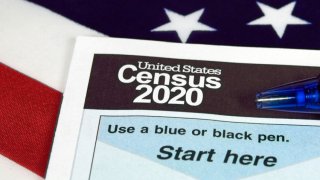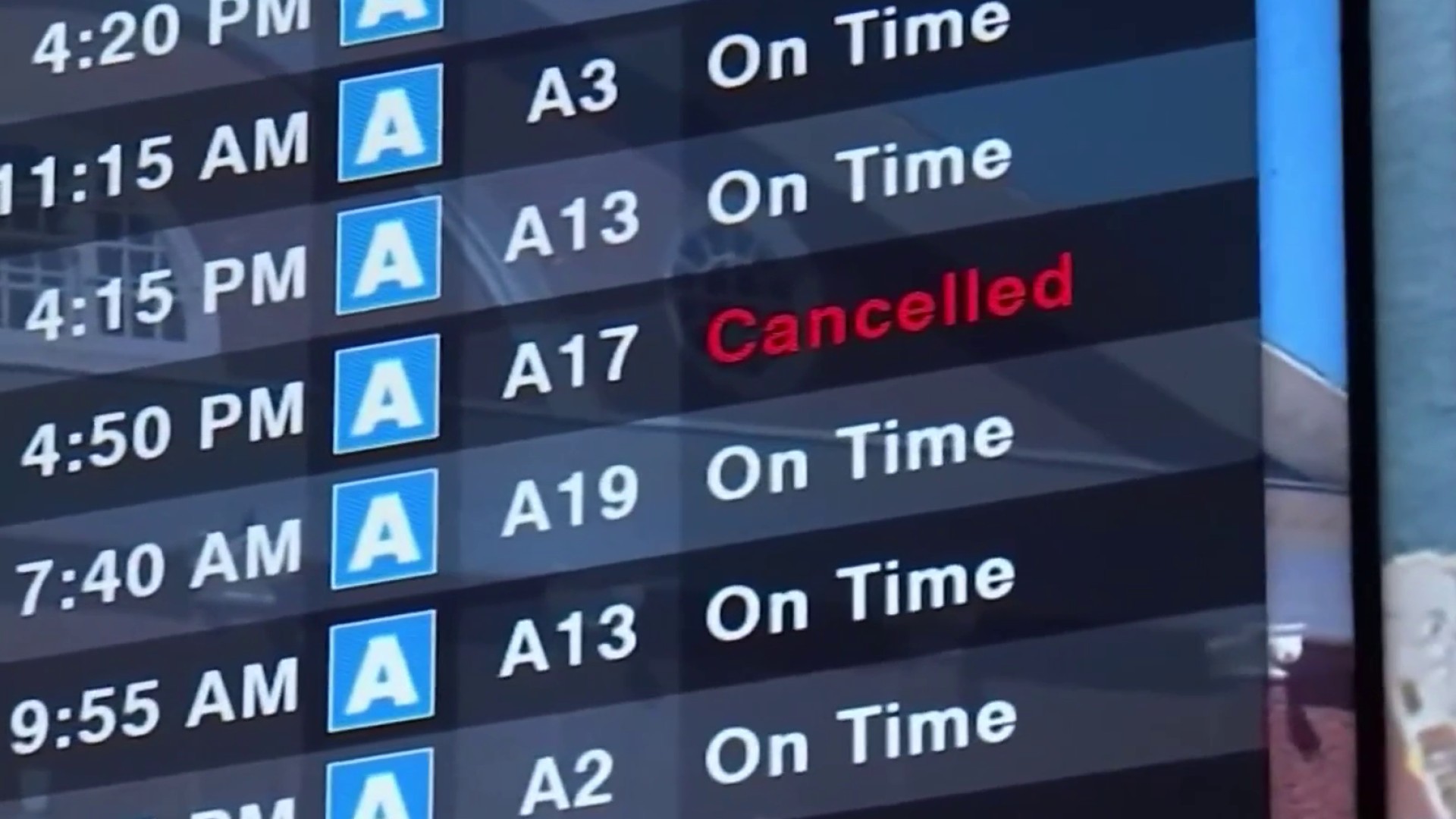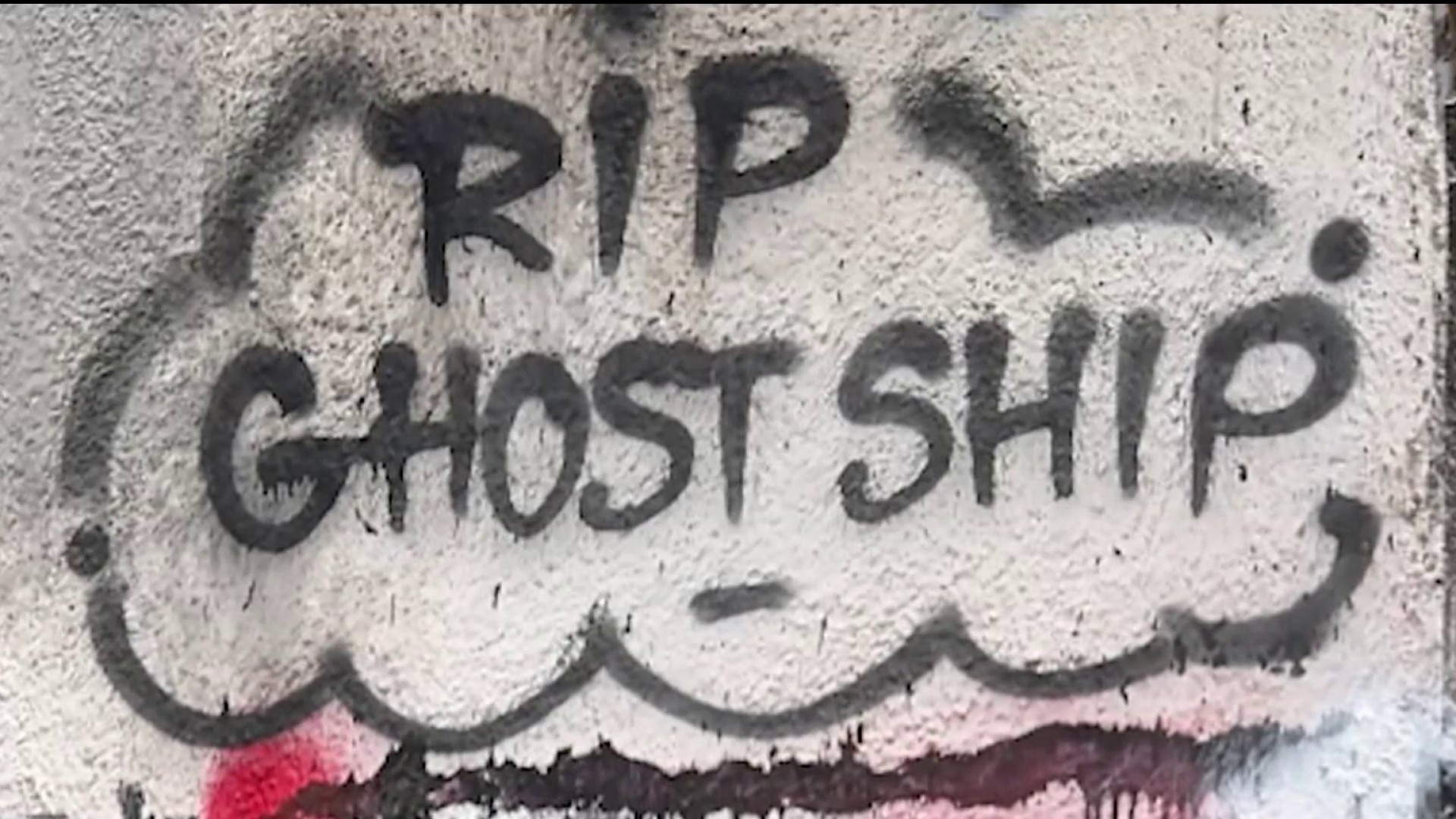
Asian American leaders in the Bay Area are activating their networks to spread the message that billions of dollars tied to the upcoming U.S. Census count are at stake.
A group of Asian American leaders from around the Bay Area and Central Valley met in San Francisco Thursday to make that point and unravel the complexities that surround the process.
"The census is the linchpin of our democracy," said Hong Mei Pang, director of advocacy for Chinese for Affirmative Action, a 50-year-old civil rights and social justice organization that hosted the event along with Ethnic Media Services.
Pang and several other speakers stressed the importance of a full count, noting that billions of dollars in federal spending is tied to census numbers. They are working to be sure that every person of Asian descent is counted in the decennial effort to quantify exactly who lives in the U.S. and where they reside.
In 2016 alone, the state received roughly $115 billion in federal money that was directly tied to its population count, according to a 2019 report by the Public Policy Institute of California.
Those dollars are especially critical for many newly arrived South, Southeast and Central Asian communities, many of which rely on government assistance for food, health care and education, among other things, and are growing rapidly.
For example, according to data compiled by Ethnic Media Services from aapidata.com, the Nepalese population in the U.S. grew by 200 percent to 155,573 individuals between 2010 and 2016.
Local
During that same period, the Burmese population grew by 68 percent to 153,262 people and the Bangladeshi population grew by 36 percent to 175,592 people.
Overall, the U.S. Asian population has the fastest growth rate of any racial group and increased by 72 percent from 2000 to 2015, according to the Pew Research Center.
In comparison, the Latino population grew by 60 percent during that same period.
In addition to being the key data set for the distribution of federal dollars, census numbers are also used to redraw congressional, state and local government districts.
"The census should be a highway for political visibility for all communities," Pang said.
But many Californians belong to so-called "hard to count" communities that have historically been left under enumerated and therefore underrepresented politically and underserved by government programs that provide vital health, nutrition and housing assistance and a wide array of educational services, including school construction, among other things.
"Our community is dependent on benefits, and the benefits come from the census," said Prem Pariyar, vice president of the Nepali Association of Northern California.
Many Asian communities in California are particularly vulnerable to an undercount because, in part, Asians are the only racial group in the U.S. that is composed of a majority of people -- 59 percent -- who were born in another country, according to a 2019 Pew Research Center report.
For one thing, this means that language barriers are keeping many people from either fully understanding the importance of the count, being able to fill out the census forms properly, or both.
And while the U.S. Census Bureau offers information in 59 languages, the online form and phone assistance will only be available in 12 non-English languages, five of which are Asian - simplified Chinese, Vietnamese, Korean, Tagalog and Japanese.
To help mitigate this, groups like the United Way Bay Area will pass through millions of dollars in state grants to grass-roots community organizations that can conduct census outreach and education in languages like Hmong, Hindi, Lao, Urdu, Thai, Khmer, Burmese, Bengali and others.
"We focus on infrastructure to support and amplify the work being done," said Stephanie Kim, the senior director of Census 2020 for the United Way Bay Area, which has granted more than $1.5 million to nearly 100 community groups in the run-up to the count, which starts on April 1.
"We know which languages are spoken in the Bay Area and we are trying to hit as many of those languages as possible," Kim said.
Immigrant communities also face other barriers to full participation in the census.
Many new arrivals, for example, are being confronted with intense anti-immigrant rhetoric and policies from the Trump White House, which even sought to include a citizenship question on this year's census - an effort some felt was a prelude to discrimination and the targeting of immigrants.
And while the move was ultimately unsuccessful, it's feared that the damage has been done and that many non-citizens will be too afraid to fill out the forms.
"Most of the (Nepalese) community are asylum seekers, undocumented, so they have fear because of the present administration," said Pariyar, voicing a common sentiment that has emerged among many immigrant groups.
Pariyar and other community leaders like him, however, say they are determined to make sure people know that the information provided to the census is confidential, that it can't be shared except as statistical data, and that, according to U.S. Census Bureau officials, anyone caught distributing such information can be imprisoned for up to five years and fined $250,000.
"We have developed a one pager of information in our own language. We are distributing this information. We are going to each and every home, organizing house parties, going to the churches, going to the temples, going to the community meetings," Pariyar said. "Because we want our community to be counted."
Still, distrust of government can run deep in immigrant communities, especially for people that have come from places like Nepal, Vietnam, Cambodia, China and other countries where participating in public life is not only discouraged, it can be dangerous.
For example, in the 1980s, the government of Bhutan used its census to round up people of Nepalese decent and expel them from the country.
It's a brutal reality that even Census Bureau officials are struggling to overcome.
"In America, we have to be counted," said Sonny Le, a partnership specialist with the Census Bureau who attended Thursday's event.
"This is our country too. We belong here, we pay taxes, we pay rent. The census is one way we can get our fair share," Le said. "You don't have to be a citizen, you don't even have to be documented to be counted."
"People want us to be invisible," Le said. "This is our chance to be visible and this is our chance to raise our voice."



